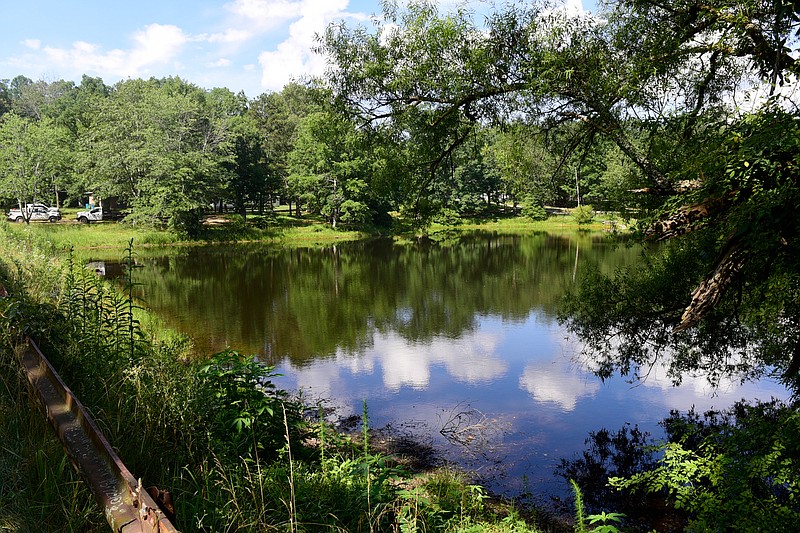Hundreds of residents in Dade County, Georgia, are pushing back against the county and state for draining water from a local lake that has been identified as a possible danger due to the structural integrity of its dam.
However, the commission has its hands tied and is only following state guidelines to avoid getting a fine.
Earlier this year, the Associated Press published an investigation that found thousands of dams across the country were going largely uninspected and could cause catastrophic damage if they failed.
A review of federal data and reports obtained under state open records laws by the AP identified 1,688 high-hazard dams rated in poor or unsatisfactory condition as of 2018 in 44 states and Puerto Rico.
Georgia had the highest number of high-hazard dams in unsatisfactory or poor condition with nearly 200. Lookout Lake Dam in Rising Fawn was one of those identified as "high hazard and in poor condition."
Dams in Northwest Georgia classified by the AP as “high hazard and in poor condition.”
— Lookout Lake Dam, Dade County; last inspected on March 15, 2017— Lake Kathy Dam, Catoosa County; last inspected on March 8, 2017— Dalton Utilities Impoundment Dike #3, Whitfield County; last inspected August 16, 2017— Seventh Day Adventist Lake Dam, Murray County; last inspected on March 8, 2017- Glenn Lake Dam, Murray County; last inspected on March 8, 2017
In the mid-2000s, the dam was damaged after a boat got loose on the lake and blocked the spillway. Since, the county and state have been aware of problems the dam could have in the event of a large amount of rain or another unexpected occurrence.
The dam is in Commissioner Alan Bradford's district. The commissioner's brother, Melvin Bradford, is the Dade County resident who started a petition that received more than 200 signatures urging the commission to not drain the lake.
Commissioner Bradford and Commission Chairman Ted Rumley told Melvin Bradford and others that they would be in favor of leaving the lake as it is, but they have to follow state guidelines and must complete the project.
Alan Bradford told the Times Free Press the county is helping the private landowner who owns the land the lake sits on to pay for the project. The county owns the road that goes over the dam. Bradford said current estimations for the project total about $300,000.
"We can't stop it," Bradford said. "This has been going on since 2004 and it's finally come to a head."
Bradford said the water that is being drained from the lake isn't as bad as people might think. He was out at the lake Tuesday to watch crews take out trees and do other work and found out the water needing to be drained is 4 feet from the highest point of the road that borders the lake. That is contrary to what most people thought, which is 4 feet of water out of the lake, he said.
"The water will probably go down 2 to 3 feet at the most," Bradford said.
Rumley told several people at last week's commission meeting who were opposed to the work the state is concerned that if the dam were to give out, water would flow down the canyon and potentially wipe out driveways, roads and flood homes.
The state and county came to an agreement recently and now the county is about a month into its six-month project window. Once the six months are up, the state could fine the county $500 per day, and after 20 days fees could increase to $5,000 a day.
Contact Patrick Filbin at pfilbin@timesfreepress.com or 423-757-6476. Follow him on Twitter @PatrickFilbin.

